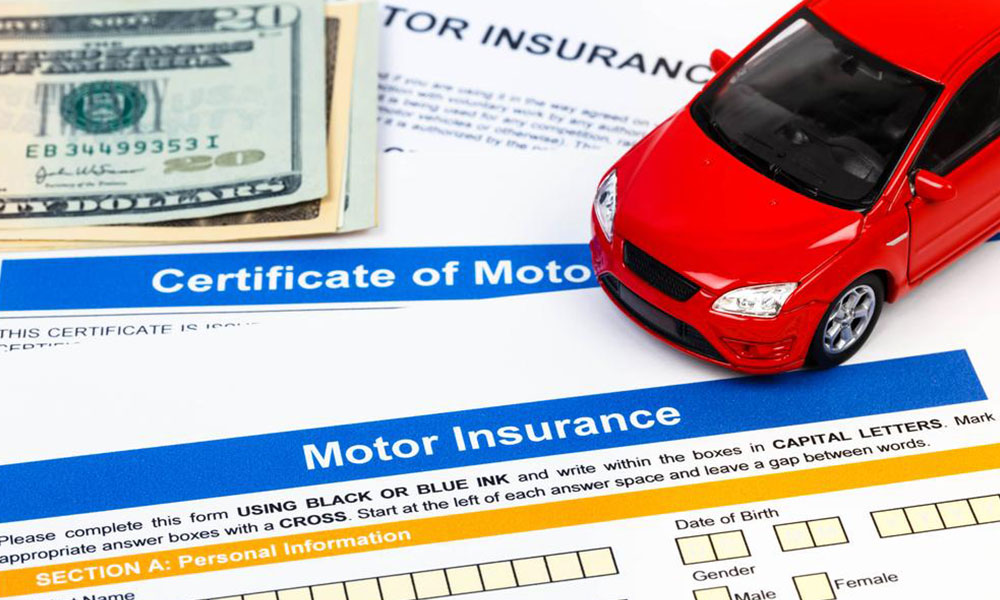In today’s competitive landscape, securing the most affordable car insurance rates is a top priority for many drivers. Navigating the complex world of insurance policies and premiums can be overwhelming, but with a strategic approach, you can unlock the secrets to finding cheap car insurance quotes. This guide delves into the intricacies of car insurance, empowering you to make informed decisions and secure the best possible coverage at the most competitive price.
Understanding the fundamentals of car insurance, including the different types of coverage and the factors that influence premiums, is essential for making informed choices. By comparing quotes from multiple insurers and leveraging discounts and promotions, you can significantly reduce your insurance costs. This guide equips you with the knowledge and tools to navigate the insurance landscape effectively and secure the best possible car insurance rates.
Understanding Car Insurance

Car insurance is a crucial financial safety net that protects you from financial losses arising from accidents, theft, or other unexpected events involving your vehicle. It provides financial compensation for damages to your car, injuries to yourself or others, and legal expenses, among other things.
Types of Car Insurance Coverage
Car insurance policies typically include various types of coverage to address different scenarios. Here is a breakdown of the most common types:
- Liability Coverage: This coverage protects you financially if you are at fault in an accident that causes injury or damage to another person or their property. It covers the other party’s medical expenses, property damage, and legal fees.
- Collision Coverage: This coverage pays for repairs or replacement of your vehicle if it is damaged in an accident, regardless of who is at fault. It also covers damages caused by hitting stationary objects.
- Comprehensive Coverage: This coverage protects your vehicle from damages caused by events other than collisions, such as theft, vandalism, natural disasters, or falling objects. It typically covers the cost of repairs or replacement.
- Uninsured/Underinsured Motorist Coverage: This coverage protects you in case you are involved in an accident with a driver who has no insurance or insufficient coverage. It compensates for your injuries and property damage.
- Personal Injury Protection (PIP): This coverage, also known as no-fault insurance, covers your medical expenses and lost wages, regardless of who is at fault in an accident. It is typically required in some states.
- Medical Payments Coverage (Med Pay): This coverage supplements your health insurance by paying for medical expenses for you and your passengers, regardless of who is at fault in an accident.
Factors Influencing Car Insurance Premiums
Several factors determine your car insurance premium. Understanding these factors can help you make informed decisions to potentially lower your costs:
- Driving Record: Your driving history, including accidents, traffic violations, and driving under the influence convictions, significantly impacts your premium. A clean driving record generally translates to lower premiums.
- Age and Gender: Insurance companies often consider age and gender as factors, with younger and male drivers typically paying higher premiums due to higher risk profiles.
- Vehicle Type and Value: The make, model, year, and value of your vehicle influence your premium. Higher-value vehicles with more advanced safety features may attract higher premiums.
- Location: Your geographic location affects your premium. Areas with higher accident rates or crime rates tend to have higher premiums.
- Driving Habits: Your driving habits, such as mileage driven, commuting distance, and driving patterns, can influence your premium. For example, drivers with high mileage or who frequently drive in congested areas may pay more.
- Credit Score: In some states, insurance companies consider your credit score as a factor in determining your premium. A higher credit score can potentially lead to lower premiums.
- Insurance History: Your insurance history, including claims filed and previous coverage, can impact your premium. A history of frequent claims or lapses in coverage may lead to higher premiums.
The Importance of Comparing Quotes

In the competitive landscape of car insurance, securing the best possible rate is essential. Comparing quotes from multiple insurers is a crucial step in this process, offering numerous benefits that can significantly impact your financial well-being.
Benefits of Comparing Quotes
Comparing quotes from different car insurance companies can yield substantial advantages. It allows you to:
- Discover a wider range of coverage options: Different insurers offer varying levels of coverage, deductibles, and discounts. Comparing quotes enables you to find the policy that best suits your needs and budget. For example, you might find one insurer that offers more comprehensive coverage at a lower price than another.
- Identify potential cost savings: By comparing quotes, you can uncover significant differences in premiums, potentially saving hundreds or even thousands of dollars annually. This is especially important considering that car insurance premiums can fluctuate based on factors such as your driving record, vehicle type, and location.
- Negotiate better rates: Armed with quotes from multiple insurers, you can leverage this information to negotiate a better rate with your current insurer. By demonstrating that you are willing to switch providers, you may be able to secure a lower premium.
The Risks of Not Comparing Quotes
Failing to compare quotes can lead to several negative consequences:
- Overpaying for insurance: Not comparing quotes can result in paying significantly higher premiums than necessary. This can put a strain on your budget and limit your financial flexibility.
- Missing out on valuable discounts: Different insurers offer a variety of discounts, such as safe driver discounts, good student discounts, and multi-car discounts. By not comparing quotes, you may miss out on these potential savings.
- Limited coverage options: Sticking with your current insurer without comparing quotes may limit your access to different coverage options and features that could better meet your needs.
Factors Affecting Car Insurance Rates
Car insurance premiums are calculated based on a variety of factors, and understanding these factors can help you make informed decisions to potentially lower your costs.
Driving History
Your driving history plays a significant role in determining your insurance rates. Insurance companies use this information to assess your risk as a driver.
- Accidents: Having a history of accidents, especially at-fault accidents, will typically increase your premiums. The severity of the accident and the number of accidents you’ve been involved in will influence the impact on your rates.
- Traffic Violations: Traffic violations, such as speeding tickets, reckless driving, and DUI convictions, can significantly increase your insurance premiums. These violations indicate a higher risk of future accidents.
- Driving Record Cleanliness: A clean driving record, free of accidents and violations, is a major factor in securing lower insurance rates.
Vehicle Type and Value
The type and value of your vehicle are significant factors in determining your car insurance premiums.
- Vehicle Type: Sports cars and luxury vehicles are generally more expensive to insure than sedans or hatchbacks. This is because they are often more expensive to repair, have higher theft rates, and are often driven at higher speeds.
- Vehicle Value: The value of your vehicle also plays a role. Higher-value vehicles typically have higher premiums because the cost to repair or replace them is greater.
Other Factors
| Factor | Impact on Rates |
|---|---|
| Age and Gender | Younger drivers, particularly males, often have higher insurance rates due to their higher risk of accidents. |
| Location | Insurance rates can vary significantly based on your location. Areas with higher crime rates or more traffic congestion typically have higher premiums. |
| Credit Score | In some states, insurance companies may use your credit score as a factor in determining your rates. A good credit score can indicate financial responsibility and may lead to lower premiums. |
| Coverage Options | The type and amount of coverage you choose will also affect your premiums. Higher coverage limits, such as comprehensive and collision coverage, will generally lead to higher premiums. |
| Driving Habits | Some insurance companies offer discounts for safe driving habits, such as using telematics devices or having a good driving record. |
Online Quote Comparison Tools
In today’s digital age, finding the best car insurance deal is easier than ever thanks to online quote comparison tools. These platforms allow you to compare quotes from multiple insurers in one place, saving you time and effort.
Advantages of Online Quote Comparison Tools
Using online quote comparison tools offers numerous advantages for car insurance shoppers.
- Convenience: You can access and compare quotes from the comfort of your home, at any time of day or night, without needing to contact multiple insurers individually.
- Time-Saving: Instead of spending hours filling out separate forms for each insurer, you can enter your information once and receive multiple quotes within minutes.
- Transparency: Online quote comparison tools typically display all relevant information, such as coverage details, premiums, and deductibles, allowing for a more informed decision.
- Potential for Savings: By comparing quotes from various insurers, you can potentially identify lower premiums and find the best value for your needs.
Popular Online Quote Comparison Platforms
Several popular online quote comparison platforms are available, each with its own features and advantages.
- Compare.com: This platform allows you to compare quotes from over 20 insurers, including major players like Geico, Progressive, and State Farm. Compare.com also offers additional features, such as the ability to review customer reviews and compare insurance policies based on specific needs.
- Insurify: Insurify boasts a wide network of insurance providers and provides a user-friendly interface for comparing quotes. The platform also offers tools for customizing your coverage and understanding your policy details.
- Policygenius: Policygenius stands out for its focus on transparency and providing personalized recommendations. The platform offers a comprehensive comparison of quotes and allows you to speak with licensed insurance agents for personalized guidance.
How to Use an Online Quote Comparison Tool
Using an online quote comparison tool is straightforward and requires a few simple steps:
- Visit the platform’s website: Select a reputable online quote comparison platform and navigate to their website.
- Enter your information: Provide basic information, such as your zip code, age, driving history, and desired coverage details.
- Compare quotes: The platform will display quotes from multiple insurers, allowing you to compare premiums, coverage options, and other relevant factors.
- Review and select: Carefully review the quotes and choose the policy that best meets your needs and budget.
- Contact the insurer: Once you’ve selected a policy, contact the insurer directly to finalize the purchase and obtain your insurance card.
Tips for Obtaining Cheap Quotes
Securing affordable car insurance quotes requires a strategic approach that involves maximizing discounts, comparing multiple offers, and understanding the factors influencing your rates. By employing these techniques, you can significantly reduce your insurance costs and find a policy that best suits your needs.
Shop Around and Compare Quotes
Comparing quotes from multiple insurers is essential to ensure you get the best possible rate. Each insurer uses different algorithms to calculate premiums, resulting in varying prices for the same coverage.
- Use online quote comparison tools to streamline the process and gather quotes from several insurers simultaneously.
- Consider contacting insurers directly to discuss specific needs and potentially negotiate rates.
- Compare not only premiums but also coverage options and deductibles to find the best value.
Leverage Discounts and Promotions
Insurers offer a range of discounts to lower premiums for eligible policyholders. These discounts can significantly reduce your overall costs.
- Good driver discounts: Maintain a clean driving record and avoid accidents and traffic violations to qualify for lower premiums.
- Safe driving courses: Completing defensive driving courses can demonstrate your commitment to safe driving and earn you discounts.
- Bundling discounts: Combine your car insurance with other policies like homeowners or renters insurance to receive a discount on both.
- Loyalty discounts: Staying with the same insurer for an extended period can qualify you for loyalty discounts.
- Payment discounts: Some insurers offer discounts for paying premiums in full or setting up automatic payments.
Checklist for Securing the Best Quote
To secure the best possible car insurance quote, follow this checklist:
- Review your driving history and identify any potential areas for improvement, such as speeding tickets or accidents.
- Consider upgrading your car’s security features, such as installing an alarm system or anti-theft devices, to qualify for discounts.
- Compare quotes from at least three different insurers to ensure you’re getting the best rate.
- Negotiate with insurers to potentially lower premiums, especially if you have a clean driving record and a good credit score.
- Review your policy regularly and adjust coverage as needed to minimize costs while maintaining adequate protection.
Understanding Insurance Policies

Car insurance policies are legal contracts outlining the terms and conditions of coverage between you and your insurance company. Understanding the key terms and conditions is crucial for making informed decisions about your coverage and ensuring you are adequately protected in case of an accident.
Key Terms and Conditions
Car insurance policies are filled with specific terminology that can be confusing. Familiarizing yourself with these terms is essential for understanding your policy and knowing what you are covered for.
- Coverage Limits: These define the maximum amount your insurer will pay for a covered claim. Coverage limits are typically expressed as a dollar amount per incident or per policy period. For example, your policy might have a liability coverage limit of $100,000 per accident or a comprehensive coverage limit of $50,000 per covered event.
- Deductible: The amount you agree to pay out-of-pocket before your insurance company covers the rest of the claim. A higher deductible usually results in a lower premium. For example, a $500 deductible means you would pay the first $500 of any claim, and your insurer would cover the rest up to the policy limit.
- Premium: The regular payment you make to your insurer for coverage. The premium amount is calculated based on factors like your driving history, vehicle type, location, and coverage options.
- Exclusions: Specific situations or events not covered by your policy. For example, your policy might exclude coverage for damage caused by wear and tear or driving under the influence of alcohol or drugs.
- Endorsements: Additional coverage options that can be added to your policy for a fee. Examples include roadside assistance, rental car coverage, or gap insurance.
Importance of Reading and Understanding Your Policy
Reading and understanding your policy thoroughly is essential for several reasons:
- Know Your Coverage: Understanding your policy ensures you know exactly what is covered and what is not. This knowledge allows you to make informed decisions about your coverage needs and avoid surprises in case of a claim.
- Avoid Disputes: A thorough understanding of your policy can help prevent disputes with your insurer. If you know your coverage limits and exclusions, you are less likely to be surprised by a denial of a claim.
- Negotiate Coverage: Understanding your policy allows you to negotiate with your insurer for better coverage or a lower premium. You can identify areas where you might be overpaying or under-insured and request adjustments to your policy.
Tips for Negotiating Policy Terms and Coverage
- Shop Around: Comparing quotes from different insurers can help you find the best coverage at the most competitive price. This is especially important when negotiating your policy terms and coverage.
- Ask Questions: Don’t hesitate to ask your insurance agent or broker questions about your policy. Clarify any terms you don’t understand and ask for explanations of the different coverage options available.
- Negotiate Your Deductible: Consider increasing your deductible to lower your premium. This can be a good option if you are comfortable paying a higher out-of-pocket expense in exchange for lower premiums.
- Bundle Your Policies: Bundling your car insurance with other types of insurance, like home or renters insurance, can often lead to discounts.
- Review Your Policy Regularly: It’s a good idea to review your policy annually to ensure it still meets your needs. You may need to adjust your coverage based on changes in your driving habits, vehicle type, or financial situation.
Avoiding Common Mistakes

Finding the cheapest car insurance can feel like a daunting task, but it doesn’t have to be. Many people make common mistakes that can lead to higher premiums. By understanding these pitfalls and taking proactive steps, you can significantly reduce your insurance costs.
Failing to Shop Around
It’s crucial to compare quotes from multiple insurance companies before settling on a policy. Many people make the mistake of sticking with their current insurer without exploring other options. This can lead to paying significantly higher premiums than necessary.
“The average driver can save over $700 per year by comparing quotes from multiple insurers.” – NerdWallet
Ignoring Discounts
Insurance companies offer various discounts, and failing to take advantage of them can cost you money. These discounts can be based on factors like good driving records, safe vehicles, bundling policies, or being a member of certain organizations.
- Good Driver Discounts: Maintain a clean driving record to qualify for these discounts.
- Safe Vehicle Discounts: Choose vehicles with advanced safety features to secure lower premiums.
- Bundling Discounts: Combine your car insurance with other policies, such as home or renters insurance, for significant savings.
Providing Inaccurate Information
When applying for car insurance, it’s essential to be truthful and accurate. Providing false information can lead to policy cancellation and even legal consequences. Be sure to disclose all relevant details, such as your driving history, vehicle usage, and any modifications to your car.
Not Understanding Your Coverage
Not fully understanding your insurance policy can lead to inadequate coverage and financial hardship in the event of an accident. Carefully review the policy documents and ask questions to ensure you understand the coverage limits, deductibles, and exclusions.
Not Reviewing Your Policy Regularly
Insurance needs change over time, and your current policy may no longer be the most suitable for your situation. Review your policy at least annually to ensure it still meets your needs and consider adjusting coverage levels or deductibles as necessary.
The Role of Customer Service
In the world of car insurance, where unforeseen events can occur at any moment, the quality of customer service becomes a critical factor in choosing the right insurer. While price and coverage are important considerations, having a reliable and responsive insurer to support you through difficult times can make all the difference.
Excellent customer service goes beyond simply answering phone calls or responding to emails. It encompasses a commitment to understanding your needs, providing clear and timely communication, and resolving issues efficiently and fairly. A good insurer will demonstrate empathy, professionalism, and a genuine desire to help you navigate the complexities of insurance.
Evaluating Customer Service Quality
Evaluating customer service quality requires a comprehensive approach that goes beyond just looking at a few online reviews. To assess the true value of an insurer’s customer service, consider the following:
- Response Time and Availability: How quickly does the insurer respond to your inquiries? Are they available during convenient hours? Do they offer multiple channels of communication, such as phone, email, and online chat? A responsive insurer will make it easy for you to get the information you need when you need it.
- Knowledge and Expertise: Do the customer service representatives have a thorough understanding of insurance policies and procedures? Are they able to answer your questions accurately and provide helpful advice? A knowledgeable insurer will ensure that you receive the right guidance and support throughout the process.
- Friendliness and Professionalism: Are the customer service representatives courteous and respectful? Do they communicate clearly and effectively? A friendly and professional team will make you feel valued and comfortable throughout your interactions with the insurer.
- Claims Handling Process: How smooth and efficient is the claims process? Does the insurer provide clear instructions and support throughout the process? Are they responsive to your needs and inquiries? A well-managed claims process will minimize stress and ensure that you receive the compensation you deserve.
- Customer Reviews and Testimonials: Read reviews from other customers to get a sense of their experiences with the insurer’s customer service. Look for consistent feedback on responsiveness, helpfulness, and overall satisfaction.
Handling Insurance Claims and Disputes
Navigating insurance claims and disputes can be a challenging process. Understanding your rights and responsibilities, as well as the insurer’s procedures, is crucial for a successful outcome. Here’s a guide on how to handle these situations effectively:
- Report the Claim Promptly: Contact your insurer as soon as possible after an accident or incident. Provide all necessary details, including date, time, location, and any witnesses.
- Document Everything: Keep detailed records of all communication with the insurer, including dates, times, names of representatives, and summaries of conversations. Take photographs or videos of any damage or injuries.
- Follow the Insurer’s Instructions: Adhere to the insurer’s procedures for filing a claim, including deadlines and required documentation. Be prepared to provide any necessary information or cooperate with investigations.
- Negotiate with the Insurer: If you disagree with the insurer’s assessment or settlement offer, be prepared to negotiate. Be respectful but firm in your position. Consider seeking legal advice if you feel your rights are being violated.
- Understand Your Policy: Carefully review your insurance policy to understand your coverage limits, deductibles, and any exclusions. This will help you navigate the claims process effectively.
Additional Considerations
Beyond the factors already discussed, several other aspects can significantly influence your car insurance premiums. These include your credit score, the type of coverage you choose, and the use of a broker or agent. Understanding these considerations can help you make informed decisions to secure the most affordable and comprehensive car insurance.
Credit Score Impact on Premiums
Insurance companies often consider your credit score when calculating your car insurance premiums. This practice is based on the assumption that individuals with good credit are more financially responsible and less likely to file claims. While the correlation between credit score and insurance risk is debated, it’s a factor that can affect your rates.
- Higher credit scores generally translate to lower insurance premiums.
- Lower credit scores may lead to higher premiums.
It’s important to note that credit score usage varies by state and insurance company. Some states prohibit the practice entirely, while others allow it with certain restrictions. It’s crucial to check your state’s regulations and your chosen insurer’s policy regarding credit score utilization.
Gap Insurance
Gap insurance is a supplemental coverage that helps bridge the gap between the actual cash value (ACV) of your vehicle and the outstanding loan balance if your car is totaled or stolen. ACV is typically calculated based on the car’s age, mileage, and market value. It often falls short of the amount you owe on your loan, especially if you financed a new car.
- Gap insurance covers the difference between the ACV and the loan amount, ensuring you don’t have to pay out of pocket.
- It’s particularly beneficial for new car owners or those with a loan exceeding the car’s value.
While not mandatory, gap insurance can offer significant financial protection in case of a total loss. It’s worth considering, especially if you have a substantial loan balance on your vehicle.
Benefits of Using a Broker or Agent
Using a broker or agent can simplify your car insurance search and potentially save you money. They can:
- Compare quotes from multiple insurance companies.
- Provide expert advice on coverage options and policy choices.
- Negotiate rates on your behalf.
- Assist with claims processing and advocate for your interests.
Brokers and agents often have access to exclusive deals and discounts that may not be readily available to individual consumers. They can also help you understand the intricacies of insurance policies and ensure you have adequate coverage for your needs.
Last Recap

The pursuit of cheap car insurance quotes is a journey that requires careful planning and informed decision-making. By understanding the key factors that influence premiums, comparing quotes from multiple insurers, and leveraging available discounts, you can unlock significant savings on your car insurance. Remember, the best car insurance is not always the cheapest, but rather the one that provides the right coverage at a price you can afford. Embrace the knowledge gained from this guide and embark on a path towards securing the most affordable and comprehensive car insurance protection.

